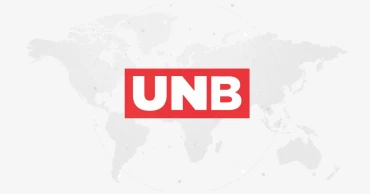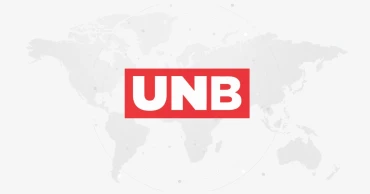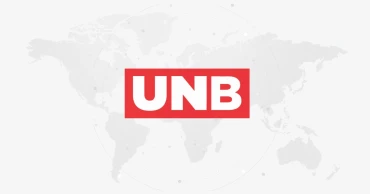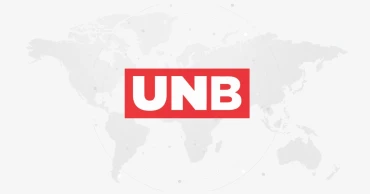NGOs
EC clears 73 NGOs for poll observer registration
The Election Commission (EC) has identified 73 non-governmental organisations (NGOs) as eligible for registration as local election observer organisations.
A list with the names and addresses of the 73 organisations, was published in a public notification issued on Saturday night.
In the notification, the EC invited any claims, objections, or complaints, if any, regarding these organisations to be submitted in writing to the EC by October 20, 2025.
The EC will finalise the registration of observer groups following hearing on objections, if any, to any organisation.
No illegal orders or favouritism to be there in Feb polls: CEC
Any claim, objection, or complaint must be submitted to the EC Senior Secretary in six sets, along with necessary documentary evidence and must include the name, address, and phone number of the complainant.
About the registration of the election observer organisations, the Commission’s decision will be considered final.
The full notification carrying the list of the provisionally selected eligible organisations is available on the EC Secretariat’s website (www.ecs.gov.bd).
4 months ago
Those afraid of elections should join NGOs, not politics: Amir Khosru
BNP senior leader Amir Khosru Mahmud Chowdhury on Sunday said those who are afraid of elections should not be there in politics and instead work as pressure groups or NGOs.
“Those who are afraid of elections do not need to do politics. Let them work as pressure groups. They can work as NGOs. You cannot do politics, avoid elections, and at the same time obstruct the democratic process. That’s unacceptable,” he said.
He made the remarks while speaking at a discussion organised by the Bhasani Janashakti Party and Bhasani Anushari Parishad at Dhaka Reporters’ Unity (DRU), marking the first anniversary of the July Uprising.
Khosru, a BNP Standing Committee member, warned that in countries where mass revolutions took place and elections were delayed, it led to division, civil war and failure as a state. “But those who returned to democracy promptly through elections saw economic, social and political improvement,” he said.
Talking about the July Uprising, he said there are some divisions over the movement, but no one has the scope to hijack it.
People want genuine democracy to solve nation’s problems: Fakhrul
He said the July uprising was not something new, as movements for their rights are in the DNA of the people of Bangladesh.
“There was no other way for Sheikh Hasina but to go. We wouldn’t have returned home if Sheikh Hasina hadn’t fallen on August 5. Our movement would have continued,” the BNP leader said.
The aim of the movement, he said, was to reclaim people’s ownership of the country and restore their constitutional rights.
Although BNP leaders and activists suffered the most, Khosru said their party never claimed credit for the movement.
He said a government elected through people’s vote must be established to make the mass uprising a success.
The BNP leader stressed that a full consensus is not needed on all issues. “Different political parties will have different ideas and beliefs, which is normal. But on national issues, unity is important. Without differences, democracy cannot survive. We are not here to establish one-party rule.”
He said there has been a change in people’s mindset in Bangladesh following Sheikh Hasina’s fleeing. “Those who fail to understand this change have no political future.”
Khosru also said many police and government officials are not working properly due to the absence of an elected government, and foreign investors are waiting for an elected government to make decisions.
6 months ago
Solution to Rohingya crisis to help realize free Indo-Pacific: Japan
Japanese Ambassador to Bangladesh Ito Naoki has said Japan will continue to work towards early repatriation of Rohingyas to Myanmar noting that a durable solution to the Rohingya crisis will be helpful to realise a free and open Indo-Pacific.
“I’m of the view that a durable solution to this crisis will be conducive to realising Free and Open Indo- Pacific,” he said on Wednesday.
The Japanese Ambassador mentioned that his country will continue contributing to the better living conditions of refugees and host communities in collaboration with international organisations and NGOs.
4 years ago
BNP attributes Covid disaster to govt’s overreliance on bureaucrats
BNP on Monday alleged that the government has failed to tackle the Covid situation in the country due to its 'overdependence’ on bureaucrats.
“The government has completely failed to contain the coronavirus infection and it has put people’s lives and livelihoods in jeopardy,” said party secretary general Mirza Fakhrul Islam Alamgir.
Speaking at a virtual discussion, he also said their party has been calling upon the government since the beginning of the Covid outbreak to hold a national convention and form a national committee at all levels comprising all political parties, experts, social organisations and NGOs to tackle the situation with united efforts by involving people.
Read:Mismanagement, politicization made vaccination drive a complete mess: BNP
“It's unfortunate that this government didn’t pay heed to it. They’ve relied only on bureaucrats to create such a terrible corona situation. It can be called a complete mess because of politicisation, political meanness, and corruption,” the BNP leader observed.
The virtual programme was arranged by the family members of BNP Chairperson’s late adviser Fazlur Rahman Patal, marking his fifth death anniversary. Patal, a former state minister for youth and sports, died at an Indian hospital on August 11, 2016, at the age of 65.
Fakhrul said the country has probably been witnessing the worst Covid situation as the highly transmissible Delta variant of the virus has spread all over the country, including the rural areas.
He said the government did not take proper steps to prevent the spread of the virus to rural areas from cities despite repeated warnings. “They took time to seal the border. That’s why, the Delta variant of the Covid pandemic spread all over the country.”
The BNP leader said the government is hardly concerned about people’s lives and livelihoods as its main focus is on creating scopes for ruling party leaders to plunder public money.
He also accused the government of mocking people by enforcing ‘unplanned’ lockdowns and ‘unjustified restrictions’, badly affecting the normal public life.
The BNP leader also said the government has destroyed the economy delaying plans and actions to overcome the fallout of the pandemic. “They did nothing, except plundering public money. We clearly see that the GDP growth is decreasing gradually, but the government is lying about it. It wants to show an inflated GDP growth by force.”
Read:Reopen educational institutions with rigid health protocols: BNP
He said the trade, imports and production are also declining alongside the GDP. “But they’re not paying any attention to it.”
Fakhrul also said around two crore people have fallen below the poverty line afresh while many others, including day-labourers, rickshaw- and van-pullers, farm labourers, hawkers, small shop workers and those involved in the informal sector, have become unemployed.
Later, the BNP secretary general inaugurated a makeshift healthcare centre set up at Bagatipara in Natore under the supervision of the Patal’s wife Kamrunnahar Shirin and her children.
4 years ago
NGOs and lack of transparency
TIB has said that the NGOs are even less transparent than the GOB. Many GOB officials and those who are not fond of NGOs are happy. It is being implied that if the Government is bad, the NGOs who are always criticizing the GOB are worse.
We had done a small survey for the TIB on the “experience of corruption” and 89% of the respondents said that they encountered corruption when transacting with the GOB. So we went back to those 11% and asked about their experiences. They said that they considered paying money to get things done as “normal” and not “corruption”. So it’s normalized and assumed that anyone who deals and transacts with the public is corrupt. Institutions in general got the same negative answers which mean the public has less or no confidence in institutions, official or private.
Read: RRRC urges NGOs to encourage Rohingyas to go to Bhasan Char
Lack of transparency and corruption
TIB has become the most vocal opponent of official corruption in Bangladesh and their words really sting the Government. Every time their report comes out the GOB responds through abuse and allegations of “foreign funded” criticism. By now the TIB is used to it but the accused of corruption is not. However, corruption and lack of transparency now bear the same meaning and so most think that NGOs are corrupt also.
Public service is not considered a matter of rights. People assume that even to get the basic services, one has to make payments. Almost everyone has to interact with the GOB for one reason or another and that is when the corruption happens.
NGOs hardly deal with the public and nor with the scale of money the GOB deals with. The only sector would be micro-finance but while that has been criticized for rough loan return methods, they make very little corruption sense. The report also doesn’t make any reference to that.
But in no ways are NGOs transparent
The problem is with the management of the NGOs. It’s largely a closed semi-secret organization which runs on the basis of cronies. NGO jobs are hardly looked forward to in most cases except for international ones where the salary is high but most NGOs are local and they are run like families with a bossy dad at the top. As it happens when there is no regulatory supervision, such outfits are run arbitrarily. There is no one to answer to as the top bodies are all filled by “cronies” and it’s significant that most NGOs are known by the name of their founders and not any organizational identity.
Read: Chapainawabganj man kills himself after failing to repay NGO loan
NGOs need to do immensely better if they are going to survive in the coming future. As it is, Corona has shrunk the global kitty for donations and NGOs are either shutting down or laying off.
The survival of the sector itself is at stake. Amidst this situation, unless management and transparency and performance improves, NGOs face a whimpering end in not just Bangladesh but the world.
4 years ago
Rohingya response: Cox's Bazar NGOs for transparency, localisation
Local NGOs working in Cox's Bazar sought transparency and localisation of Rohingya response management ahead of the launching of the Joint Response Plan (JRP) 2021 on May 18.
The $943 million plan brings together the efforts of the government of Bangladesh, and 134 UN agencies and NGO partners, targeting 880,000 Rohingya refugees and 472,000 Bangladeshis in the surrounding host communities in Cox's Bazar, the UN said Friday.
However, opinions of the locals had little reflection in the document prepared by UN agencies, Cox's Bazar CSO NGO Forum said Sunday.
Read Bangladesh to demand 10pc of funds for Rohingyas in Bhasan Char: FM
In the last four years, the Inter Sectoral Coordination Group (ISCG) rarely came up with any statistics on how much fund had gone to host communities, how much had been used for local procurement and the number of local staff employed, Rezaul Karim Chowdhury, co-chair of the CCNF, Rezaul Karim Chowdhury said.
"During the preparation of JRP plan 2021, we provided written comments on behalf of local and national NGO representatives and also organised a virtual webinar on May 5, where lawmakers, local government and UN representatives had participated. But opinions of the locals have little reflection in the document."
"Moreover there is no outline about response management if no repatriation takes place in the next five to 10 years," Rezaul added.
Read EU scales up assistance for fire victims in Cox’s Bazar
He was addressing the conference "Joint Response Plan 2021, Rohingya Response Management and Strategy: Hardly Fit for the Purpose and Futuristic" organised by CCNF.
Bimal Chandra Dey Sarker, chief Executive Mukti Cox's Bazar, said: "The UN agencies prepared the Localization Task Force in 2019 to prepare a localisation road map. The report was finalised and submitted in November 2020, but yet to be published."
Abu Morshed Chowdhury, the co-chair of CCNF, said: "There are three lines of coordination management – ISCG, Refugee Relief and Repatriation Commissioner and Office of the Deputy Commissioner – now. But there should be a single line authority for coordination."
Read Congressman Deutch lauds Hasina's role over Rohingya issue
4 years ago
More than 200 NGOs call for UN arms embargo on Myanmar
More than 200 global organizations urged the U.N. Security Council on Wednesday to impose an arms embargo on Myanmar, saying the time for statements has passed and immediate action is needed to help protect peaceful protesters against military rule and other opponents of the junta.
A statement by the non-governmental organizations said the military “has demonstrated a callous disregard for human life” since their Feb. 1 coup, killing at least 769 people including 51 children as young as six years old and detaining several thousand activists, journalists, civil servants and politicians. Hundreds of others have disappeared, it said.
Also Read: Pro-democracy forces in Myanmar create "People's Defence Force"
“No government should sell a single bullet to the junta under these circumstances,” the NGOs said. “Imposing a global arms embargo on Myanmar is the minimum necessary step the Security Council should take in response to the military’s escalating violence.”
The organizations urged the United Kingdom, the Security Council nation in charge of drafting resolutions on Myanmar, “to begin negotiations on a resolution authorizing an arms embargo as soon as possible.” This “will demonstrate to the junta that there will be no more business as usual,” they said.
Myanmar for five decades had languished under strict military rule that led to international isolation and sanctions. As the generals loosened their grip, culminating in Aung San Suu Kyi’s rise to leadership in 2015 elections, the international community responded by lifting most sanctions and pouring investment into the country. The coup took place following November elections, which Suu Kyi’s party won overwhelmingly and the military contests as fraudulent.
The 15-member Security Council has issued several statements since the coup demanding the restoration of democracy and the release of all detainees including Suu Kyi, strongly condemning the use of violence against peaceful protesters and the deaths of hundreds of civilians and calling on the military “to exercise utmost restraint” and “on all sides to refrain from violence.”
It has also stressed “the need to fully respect human rights and to pursue dialogue and reconciliation,” and backed diplomatic efforts by the 10-member Association of Southeast Asian Nations and U.N. special envoy Christine Schraner Burgener to find a solution.
“The time for statements has passed,” the NGOs said. “The Security Council should take its consensus on Myanmar to a new level and agree on immediate and substantive action.”
They said a U.N. global arms embargo against Myanmar should bar the direct or indirect supply, sale or transfer of “all weapons, munitions, and other military-related equipment, including dual-use goods such as vehicles and communications and surveillance equipment.” Training, intelligence and other military assistance should also be banned, they said.
Amnesty International’s Senior U.N. Advocate Lawrence Moss told a virtual news conference launching the statement that many countries supply weapons to Myanmar.
Citing Amnesty’s research and information from other trusted sources, he said Russia has been supplying combat aircraft and attack helicopters to Myanmar while China has been supplying combat aircraft, naval weapons, armored vehicles, surveillance drones and aiding Myanmar’s indigenous naval industry. In addition, he said, Chinese weapons, small arms and armored vehicles have been diverted to ethnic armed groups, especially the Kachin Independence Army.
Also Read:Myanmar’s military disappearing young men to crush uprising
Moss said Ukraine has also supplied Myanmar’s military with armored vehicles and is involved in the joint production of armored vehicles in Myanmar, Turkey has provided shotguns and shotgun cartridges, India has provided armored vehicles, troop carriers and naval equipment including a submarine with torpedoes, and Serbia has recorded transfers of small quantities of artillery systems and small arms.
Israel had supplied frigates and armored vehicles to Myanmar along with police training but that stopped in 2017 though it may still be providing surveillance equipment, Moss said. South Korea transferred an amphibious assault system in 2019 but announced a halt to further military exports after the coup.
Human Rights Watch’s U.N. Director Louis Charbonneau said: “This is the beginning of what we hope will be an escalation of advocacy to make it extremely difficult, if not impossible, for the Security Council, wringing its hands, sticking with inaction and the occasional statement of concern.”
But getting the Security Council to adopt a resolution authorizing an arms embargo faces an uphill struggle, especially with China and Russia’s general opposition to sanctions.
China’s U.N. Ambassador Zhang Jun, whose country holds the council presidency this month, told a news conference Monday that China is “a friendly neighbor of Myanmar” and is putting more emphasis on diplomatic efforts. It is “not in favor of imposing sanctions” which may hinder diplomacy and lead to suffering of ordinary people, Zhang said.
Amnesty’s Moss countered that an “arms embargo would not hurt the ordinary people of Myanmar in any way, shape or form... and I hope that China will consider that.”
Simon Adams, executive director of the Global Center for the Responsibility to Protect, said Myanmar’s “murderous, military-led regime” shouldn’t be allowed to buy bombs or even “camouflage underwear” and “should be treated like the pariahs that they are.”
“I think all of us share concern that the country could become a failed state, armed conflict could intensify, and so an arms embargo now is also a kind of preventive against a refugee crisis that flows across borders in the region, and an armed conflict which serves nobody’s interests,” Adams said.
Also Read: UN calls for return to democracy in Myanmar, end to violence
Myra Dahgaypaw, managing director of the U.S. Campaign for Burma who recalled fleeing from past military airstrikes, said an arms embargo won’t solve all the country’s problems but “it will significantly increase the safety of the people on the ground, including the ethnic and the religious minorities.”
“Today I just want to tell the U.N. Security Council that the people of Burma need your help, and they need it urgently,” she said. “Please don’t let the efforts, the struggle and the resilience of the people on the ground who are trying to survive go in vain.”
4 years ago
BRAC to increase capacities of partner NGOs
BRAC, one of the largest NGOs in the world, will work to increase the capacities of NGOs in the future.
5 years ago
“Don’t undermine local NGOs in Rohingya response”
Speakers at a conference has the urged the United Nations (UN) not to undermine the local NGOs regarding the humanitarian response to Rohingya camps.
5 years ago
BDCSO Process to hold virtual annual conference from Oct 6-8
BDCSO Process, a process forum of around 700 local CSOs/NGOs, will organize its virtual annual conference on October 6-8.
5 years ago







.jpg)







